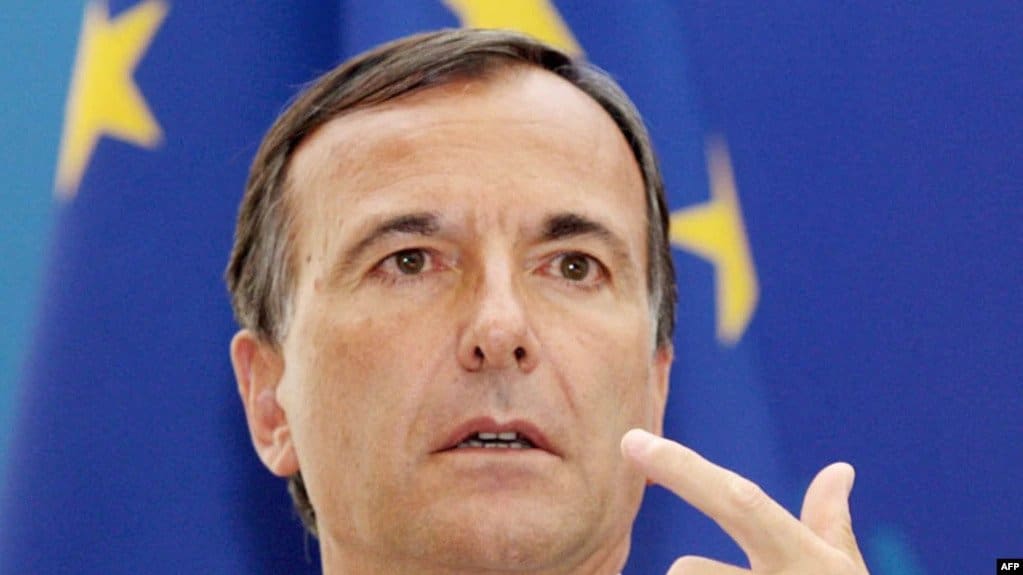Former European Justice Commissioner Franco Frattini says having international global standards would be the most effective method of fighting corruption in sport, a sector he said was increasingly attracting the mafia.
The 64-year-old Italian, who now chairs Sport Integrity Global Alliance (SIGA), said organised crime was highly interested in sport because it was “a very profitable field” for them.
Frattini told a SIGA special session on global leadership against corruption to tie in with International Anti-Corruption Day last Thursday that it was necessary to bring together law enforcement, the public and private sectors as well as public institutions dealing with sport to succeed in “destroying” the problem.
“Criminal organisations in some cases want, for example, to buy a small-size football team just to clean the picture in their given territory,“ the leading Italian judge said.
“They do it also to continue activity as a mafia gang or they want relations with sport entities and sport teams just to launder money.
“Money laundering in the field of sport and dirty money in the field of sport is an international phenomenon as well as corruption,“ the former Italian foreign minister added.
Ian Smith, Commissioner of the eSports Integrity Commission (ESIC), was also in favour of a single regulatory body and said betting on sport was one of two major threats.
“The two principal threats are a lack of global sports betting regulation and a lack of understanding of cryptocurrencies,“ said Smith, who for over a decade was legal director to the Professional Cricketers’ Association (PCA).
“These two factors combined are very dangerous for sports as payments cannot be tracked and poor enforcement of poor regulation means the chances of getting away with betting fraud and sportsmen creating match manipulation are quite high and increasing.”
He said all sides, ranging from civil society to broadcasters, needed to come together to ensure a “lack of integrity in sports betting is addressed by everybody with joined-up standards and thinking.”
Former England rugby sevens captain Ben Golling said he believes the financial problems caused by the coronavirus pandemic had exacerbated the problem of corruption in sport.
“Obviously the pandemic may have opened up that door further,“ he said.
“Sport has been really affected on a financial basis and (corruption) presents an opportunity for sport to get itself out of a hole.
“It could allow the wrong type of people to get involved and corruption to evolve.
“It could affect any sport club, whether it be rugby, tennis, football or hockey.
“They start to gain control and that can put a lot of pressure on athletes and other stakeholders to go against their beliefs.”
Viktoria Slavkova, a member of the World Anti-Doping Agency’s Finance and Administration Committee, believes sport is engaged in “a war” with organised crime over its soul.
“The main threat is the Covid pandemic as it is preventing us being able to meet in person to fight corruption and promote a brighter future for sport,“ she said.
“We should not forget this recovery (from the pandemic) is going to be a long process but we shall continue our mutual efforts to help athletes and organisations to come out of the crisis stronger and more resilient.”
Slavkova says putting in place an educational programme for athletes, coaches and referees can be a pivotal weapon in the fight against corruption and that “strict rules and high standards will support the process.”
The experienced Bulgarian administrator, though, was far from all doom and gloom.
“I am always positive and a great optimist and I believe many new opportunities can emerge from this recovery,“ she said.
“Change can bring transparency and will give assurance to sports organisations and leaders with an honest and fair approach.
“From another side it will engender sponsors’ trust and make them feel comfortable to be associated with the sport sector.”








